Unilever Vietnam embracing circular economic benefits
While oil is becoming increasingly scarce, prices are steadily rising and the market is constantly fluctuating. We are being wasteful by throwing away a large amount of plastic during our daily lives, which also pollutes the living environment. Plastic circularity that lets products be reused and return to life instead of being thrown away is the most effective solution.
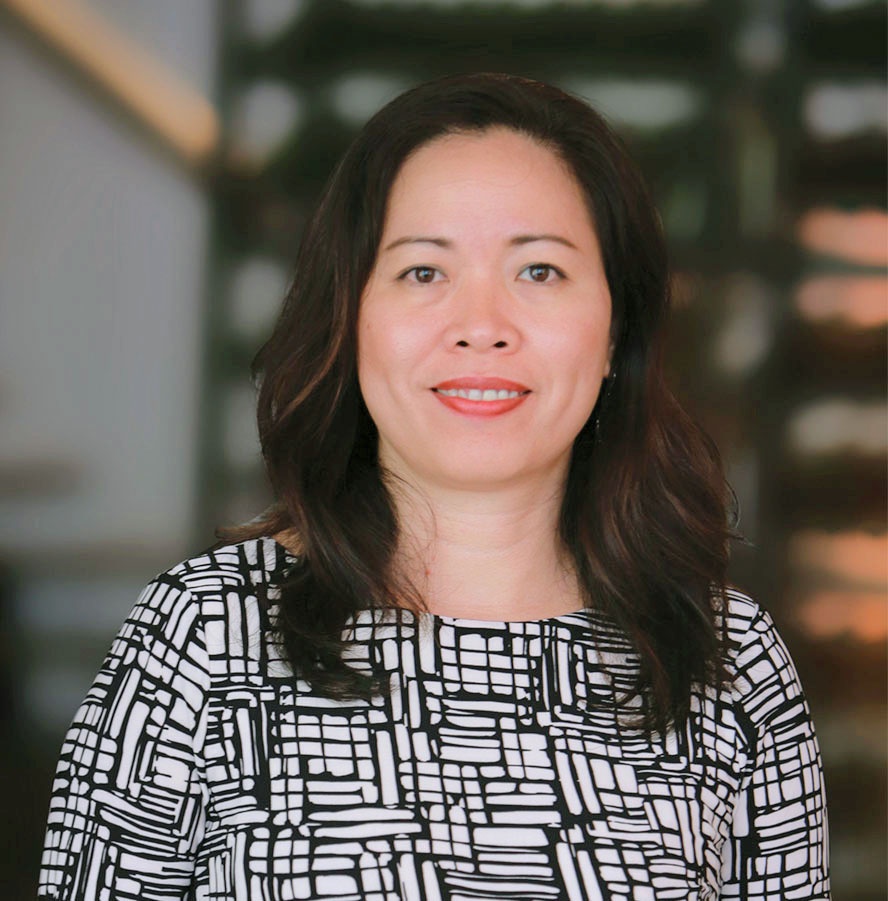 |
| Nguyen Thi Bich Van, chairwoman, Unilever Vietnam |
We can change our relationship with plastics by treating it as a valuable resource that is reused and repaired, rather than a resource that is cheap and disposable.
The circular economy is something that can be easily talked about, but bringing it to life is a challenging job that requires a lot of effort, determination, and investment commitment from businesses.
Unilever Vietnam and its partners have committed and determined to achieve this goal through implementing a series of programmes to promote green, sustainable development and enhance social responsibility.
For many years, Unilever has been actively promoting initiatives to improve packaging materials in accordance with the circular economy. About 63 per cent of Unilever Vietnam’s product packaging is recyclable or easily degradable so far. At the same time, the group recorded a 52 per cent reduction in the amount of virgin plastic used in packaging production thanks to direct reduction and utilisation of PCR plastic.
In 2020, Unilever Vietnam coordinated with the Ministry of Natural Resources and Environment (MoNRE) and two other businesses to sign an agreement to build a public-private collaboration towards a circular economy for plastics waste management.
This partnership aims to manage product lifecycles and enhance sustainable raw material supply, raise public awareness, and promote innovation and creativity on a national scale.
The collaboration now has nearly 30 members from different parts of the plastic cycle, including state organisations, recyclers like Duy Tan, collection units like Vietcycle, women’s unions, youth unions, and retail distribution partners.
During the past three years, thanks to the enthusiastic support and cooperation from the MoNRE and partners, the collaboration has collected and recycled 25,000 tonnes of plastic waste.
Manufacturers such as Unilever will use recycled plastic pellets to produce new bottles, while distributors such as retailers will bring products with recycled packaging to consumers, and encourage consumers to continue classifying plastic waste after use, so that its life cycle continues to take place.
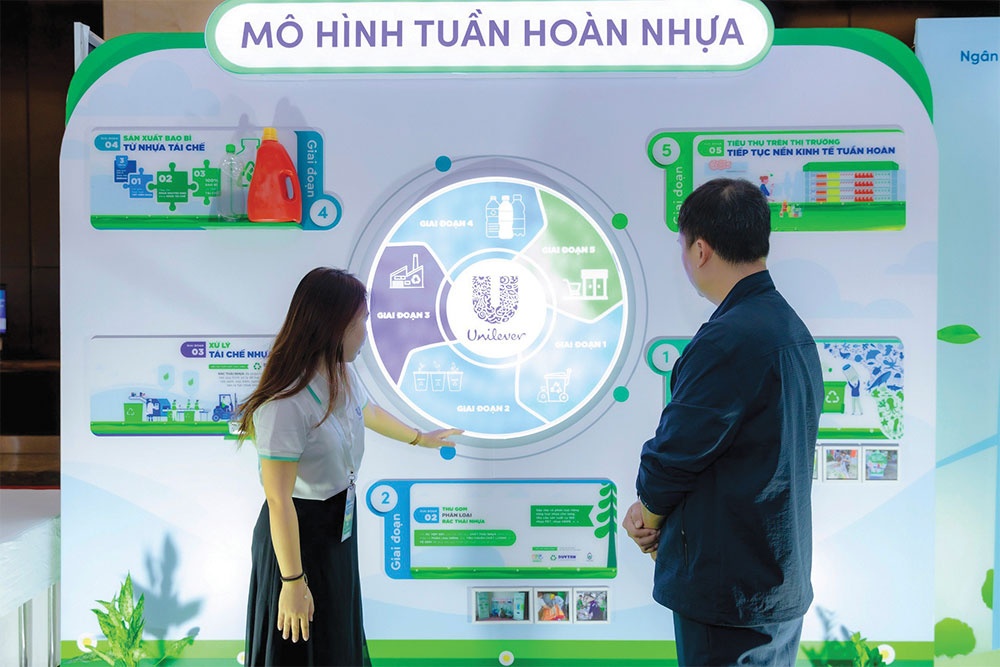 |
Moreover, we have connected and improved the lives of 2,500 scrap workers, most of whom are women, contributing to honouring their work, so they can have a better position in society. In addition, Unilever Vietnam also communicates waste classification at source to nearly 12 million people through direct and media channels.
It is time for us to change our relationship with plastic in a more sustainable way, freeing up to nearly $3 billion in material value each year and reducing greenhouse gas (GHG) emissions and environmental pollution, thereby replicating the circular economy nationwide.
Vietnam intends to cut its overall GHG emissions by 43.5 per cent by 2030 with assistance from other countries. It has also passed a raft of legislation on mitigating GHG emissions, protecting the ozone layer, carbon credits, environmental protection, and more besides in recent years in order to encourage economic development in a greener fashion.
However, developing a circular economy for plastics also requires extensive collaboration among state agencies, collectors, recyclers, international organisations, and distributors.
In addition, Vietnam needs to introduce preferred policy measures for businesses utilising recycled plastic to solve output problems and foster the growth of the recycling industry.
Investing in advanced and efficient recycling technologies specifically designed for prevalent types of plastic is also important, along with mobilising people to participate in segregating waste at source, ensuring high-quality input for the recycling process.
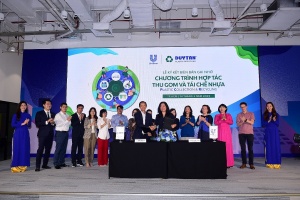 | Unilever Vietnam partners with Duy Tan Recycling Unilever Vietnam has just signed a partnership with Duy Tan Recycling with a plan to collect and recycle 30,000 tonnes of plastic waste. |
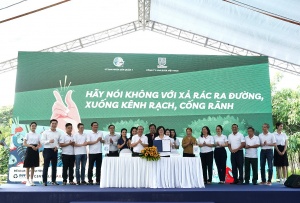 | Unilever Vietnam brings circular economy to life Unilever Vietnam and the People’s Committee of District 7 in Ho Chi Minh City have recently partnered to promote plastic waste segregation at home among the local community for better collection and recycling. |
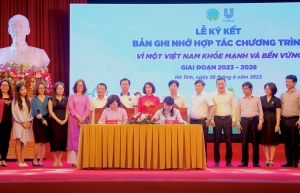 | Unilever Vietnam and Ministry of Health strengthen partnership Continuing the success of the cooperation over the past 15 years to improve health and hygiene conditions for Vietnamese people, Unilever Vietnam and the Ministry of Health (MoH) have just signed a strategic cooperation programme titled For a Healthy and Sustainable Vietnam until 2028. |
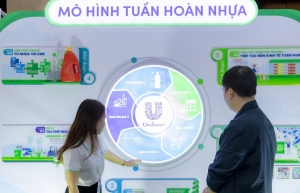 | Unilever Vietnam brings circular economy for plastics to life Unilever Vietnam has continuously implemented a series of programmes to promote green and sustainable development, covering everything from the environment to people and highlighting the need for social responsibility. |
What the stars mean:
★ Poor ★ ★ Promising ★★★ Good ★★★★ Very good ★★★★★ Exceptional
Related Contents
Latest News
More News
- A golden time to shine within ASEAN (February 19, 2026 | 20:22)
- Vietnam’s pivotal year for advancing sustainability (February 19, 2026 | 08:44)
- Strengthening the core role of industry and trade (February 19, 2026 | 08:35)
- Future orientations for healthcare improvements (February 19, 2026 | 08:29)
- Infrastructure orientations suitable for a new chapter (February 19, 2026 | 08:15)
- Innovation breakthroughs that can elevate the nation (February 19, 2026 | 08:08)
- ABB Robotics hosts SOMA Value Provider Conference in Vietnam (February 19, 2026 | 08:00)
- Entire financial sector steps firmly into a new spring (February 17, 2026 | 13:40)
- Digital security fundamental for better and faster decision-making (February 13, 2026 | 10:50)
- Aircraft makers urge out-the-box thinking (February 13, 2026 | 10:39)

 Tag:
Tag:


















 Mobile Version
Mobile Version